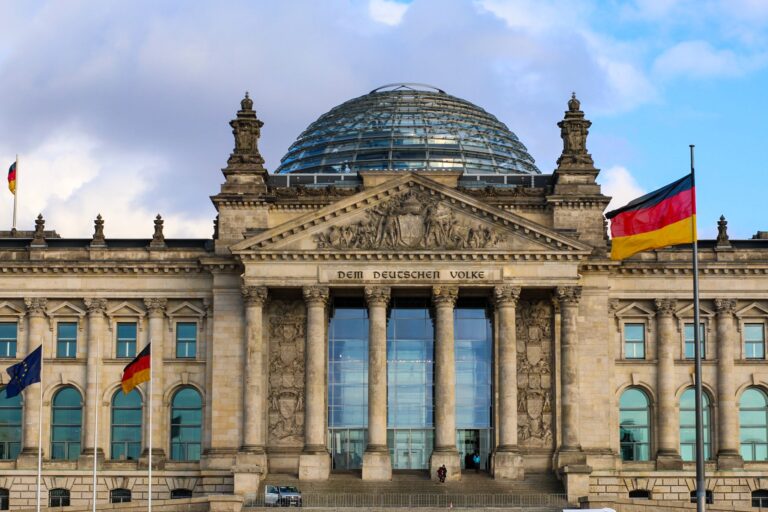The new coalition, made up of the Social Democratic Party (SPD), the Greens, and the Free Democratic Party (FDP), intends to function as an “alliance for freedom, justice and sustainability.” Indeed, the statements made in the coalition agreement sound ambitious in terms of climate protection. However, the agreement leaves questions concerning their implementation open. “This highlights the importance of the new government working together very closely,” says Dr. Simon Schäfer-Stradowsky, Managing Director of IKEM.
The parties found common ground concerning progress and working towards a “social-ecological market economy.” This may sound promising, but on closer inspection it becomes clear that the coalition partners do not have a concrete plan for how the transformation to a sustainable and future-proof economy can be achieved. While the document contains many new ideas and ambitious goals for climate protection, it does not have the same innovative approach to implementation.
This can be clearly seen with the example of CO2 pricing in Germany. The coalition wants to integrate the national CO2 pricing system as quickly as possible into a further developed European Emissions Trading Scheme (ETS 2). There is no doubt that this is a necessary and sensible measure. However, in the same paragraph, it is also stated that the existing price path for the national CO2 price will not be modified. Officially, this is justified by the social effects high energy prices would have on low-income groups, but it is more likely actually the result of taking the fossil fuel industry into consideration. In terms of climate targets, more ambition would be required here.
Nevertheless, when it comes to renewable energies, the SPD, FDP and the Greens have agreed on ambitious expansion targets. By 2030, 80 percent of gross electricity consumption is to be generated from wind energy, photovoltaics, and other forms of renewables. This sounds promising, but ultimately these goals depend on accelerated planning and external approval of the power plants. Apart from long-standing ideas, such as the designation of two percent wind energy areas, a compulsory installation of PVs on new commercial buildings and accelerated approval procedures, the coalition agreement offers little in the way of concrete action. For instance, innovative concepts, such as strengthening regional green power markets, are mentioned only briefly. All this underlines the poor outlook for the expansion of renewables.
Regarding the transformation of the transportation sector, it is a welcomed development that the new government intends to invest significantly more in rail than in road for the first time. Rail freight traffic is to be increased to 25 percent by 2030, and passenger traffic will be doubled. Once again, the coalition agreement fails to provide answers as to how the necessary expansion of the required infrastructure is to proceed.
Hydrogen is intended to become an important component of a decarbonized energy supply for both Germany and Europe. The coalition wants to double the current targets for the development of electrolysis capacities for green hydrogen in Germany from 5 to 10 GW by 2030. However, this will not be enough to cover the expected demand for hydrogen, especially since the new government announced its plan to build more “H2-ready” gas-fired power plants and gas grids. This will take hydrogen to a whole new level; because gas-fired power plants are usually combined with cogeneration, hydrogen will soon also be utilised in the heat sector. This is a good approach, but it requires large H2 quantities that must be organized via additional imports from other countries. The coalition agreement fails to provide a strategy for this.
These four examples clearly show that the coalition partners do have ambitious plans but do not know exactly how they will fulfill the expectations they create. Of course, it should also be kept in mind that a coalition agreement cannot regulate everything down to the smallest detail. This is why, for the sake of climate protection, it is all the more important that the coalition partners work well together and shape the legal framework for the transition of both the energy and the transportation sector.




